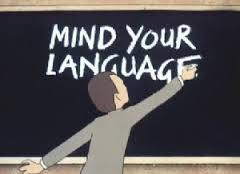 Blacks can say the N-word. Whites like me cannot. Not even in my own blog, nor even when talking of its offensiveness (as Christopher Hitchens once learned when a TV interview was abruptly terminated).
Blacks can say the N-word. Whites like me cannot. Not even in my own blog, nor even when talking of its offensiveness (as Christopher Hitchens once learned when a TV interview was abruptly terminated).
Issues of who can say what were a key topic at a 9/26 Skidmore College symposium with a panel packed with intellectual rock stars (Marilynne Robinson, Anthony Appiah, Orlando Patterson, Phillip Lopate, etc.).
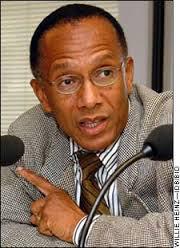
Patterson
The agenda was the interplay between ideology and belief. Patterson, a Harvard sociology professor, discussed the cultural legitimacy of beliefs, especially about groups. He noted that using group stereotypes is actually a biologically-wired survival tool – quick judgments could mean life or death for early peoples – but today, of course, it’s a no-no.
Patterson cited Lawrence Summers, whose words about women’s under-representation in science got him ousted as Harvard’s president – “rightly so,” Patterson said, to my surprise.
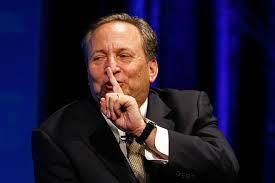
Summers
Because Summers was making an almost indisputable evidence-based point, about differences in how male and female brains work, that actually echoed claims by feminists who were lionized for it. Thus a perfect example of some being allowed to say what others aren’t.
This epitomized liberal censorship – their talk of “free expression,” “open inquiry,” and “academic freedom” is too often hypocrisy when they really mean freedom of expression only for themselves and views they favor.
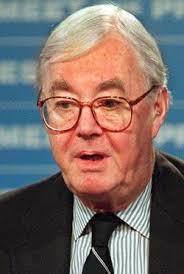
Moynihan
Patterson discussed Daniel Patrick Moynihan’s famous 1965 report on black family breakdown (which Patterson, author of award-winning books on slavery, later blamed on slavery – even though black marriage rates through the Jim Crow era and even the Depression were no lower than for whites, and only plummeted a century after slavery’s end).
Anyhow, said Patterson, Moynihan-style attempts to connect behavior to cultural differences became seen as illegitimate – the “Typhoid Mary” of sociology.

Mary
Indeed, some denied that black single parenthood was even a problem, calling it not an inferior but merely a different family model (despite mountains of data showing how much better children do with two parents). Patterson labeled all of this “crippling” for sociology.
The 1980s finally saw a “slow, cautious return” to a more honest ethos. But you were still supposed to emphasize racism to explain sociological differences, with cultural explanations remaining suspect (except respecting racial IQ test disparities). More generally it was now okay to talk about culture, “but only what’s nice about people’s culture.”
Patterson ended by decrying what he sees as a “new victimism” (referring to police-versus-blacks issues), exemplified by Ta-Nehisi Coates’s much-discussed book addressed to his son, telling him his black body is an object of hate – “child abuse,” Patterson said.
Jim Sleeper (author of Liberal Racism) commented on the role here of “moral self-justification.” He made an analogy that while communism was bad, anti-communism also sometimes entailed bad things – and the same is true of anti-racism.
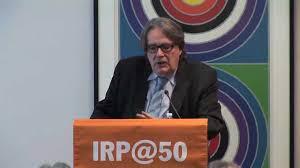
Miller
Epistemology (how and what one knows) loomed large in the discussion; in particular, what one chooses to know. Here again, liberal censorship. Patterson spoke of how information on black family breakdown was in effect whitewashed, and Jim Miller (former Director of Liberal Studies at the New School for Social Research) told how, when surveyed, his certifiably politically enlightened students mostly said they would not want to know hypothetical scientific data showing a group’s cognitive disability.
Relevant to belief differences entwined with knowledge differences, David Steiner, former (2009-11) New York State Education Commissioner, talked of attitudes toward charter schools. In Harlem he saw “tears running down the cheeks” of parents whose kids lost out in lotteries to attend charter schools – knowing those schools meant a likelihood of getting to college seven times greater. But a different narrative is evident in Baltimore where no charter school alternative for comparison exists because teacher unions have succeeded in protecting their monopoly and demonizing charters. Steiner wondered whether black Baltimoreans are cognizant of how bad their public schools are.

Steiner
(I got to chat with Steiner afterwards. He said that nationwide, public schools outperform charters – because the latter are dragged down by results in a proliferation of what he called “mom and pop” schools, while larger, more professionally run charters do much better. One might add that inner city public schools tend to do much worse than national averages.)
Again, the headline topic was the interplay of ideology and belief. Patterson alluded to the problem of what it really means to “believe” something. People can “believe” in Heaven yet cry at funerals. Self-interest and self-regard are also distorting factors. I suspect O.J. Simpson believed himself innocent. Then there’s politics and ideology. China has bitterly denounced Japan’s recent adjustment of its pacifist strictures as a “return to militarism” – while China bullies its neighbors over territorial claims and its military build-up way outstrips Japan’s. Yet do Chinese authorities believe their rhetoric? Possibly.
A second session began with a talk by Yale Professor Seyla Benhabib which I think was about public versus private selves (not the scheduled topic) but was so encrusted with academic-ese that I got little from it. She tossed in some irrelevant bombs denouncing “neoliberalism” (a derogatory term by lefties for what is really a return to classical liberal principles) and how everything today is all about money, yada, yada, yada.
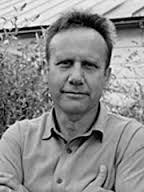
Lears
So Rutgers Professor Jackson Lears chimed in with an equally off-topic anti-capitalist rant. I was glad Jim Miller (“Liberal Studies,” remember!) called him on it, saying such burblings are empty because their devotees have no alternative to the economic arrangements they condemn (save perhaps a Soviet style command system, and we know how great that worked).
Lears shot back calling Miller’s comments among the most bizarre he’d ever heard, and that in thirty years he’d never been associated with the Soviet Union (something I doubt). Lears said the alternative system is “social democracy – it’s that simple – social democracy.”

The alternative to free market capitalism
A catch-phrase totally devoid of substantive content. Might as well say the alternative is pie-in-the-sky.
